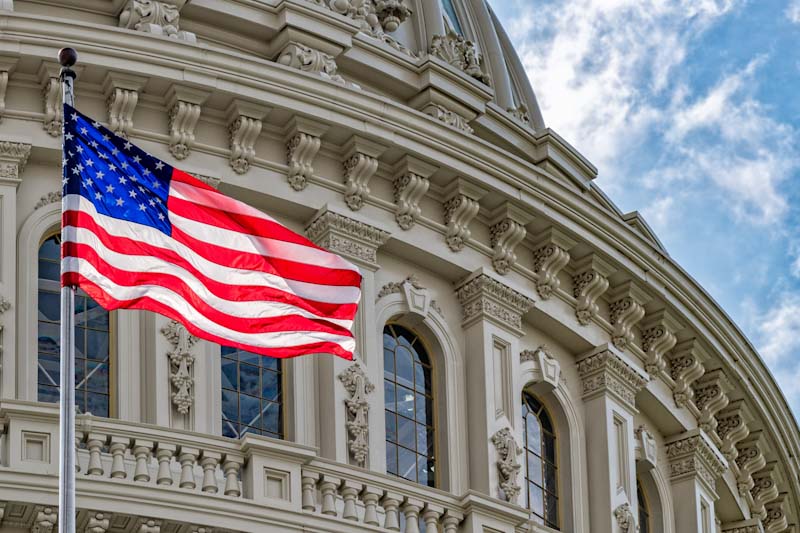This website uses cookies so that we can provide you with the best user experience possible. Cookie information is stored in your browser and performs functions such as recognising you when you return to our website and helping our team to understand which sections of the website you find most interesting and useful.
News
Legislative Update: Recycling Bills Move Through Congress
Recycling
Many in the plastics industry are calling for Congress to include the “The Realizing the Economic Opportunities and Values of Expanding Recycling Act” (RECOVER Act, H.R. 5115) in the next coronavirus relief bill. The industry-supported legislation would allocate $1 billion to municipal and state recycling infrastructure. Some environmental, recycling groups and critics of the bill said the inclusion of the legislation in a stimulus bill would provide an “individual bailout” for the plastics industry-affiliated groups. Furthermore, the groups claim that the funds could be used to promote “dangerous, unproven and thriftless technologies that would encourage more single-use plastic production at the taxpayers’ expense,” according to a May 29 letter sent to the House and Senate leadership.
The groups allege to acknowledge the importance of recycling programs but are recommending that Congress instead pass the “Break Free From Plastic Pollution Act” (S. 3263, H.R. 5845), which actually prohibits advanced recycling. Instead, this legislation is an extended producer responsibility (EPR) bill that the proponents say would reduce plastic waste and help local recyclers. The bill would phase out single-use plastic products and extend the producers’ responsibility by requiring them to design, manage, and finance programs for end-of-life management of their products and packaging as a condition of sale. Several Republican lawmakers have opposed the measure because of the amount of federal involvement that would be applied to how states and municipalities manage their recycling operations.
The Vinyl Institute, along with other plastics and chemical groups, supports the improved recycling system from the RECOVER Act. The legislation would not only be environmentally responsible but also creates jobs and economic growth. The VI has several concerns with the Break Free From Plastic Pollution Act, including a provision prohibiting the export of plastics, such as polyethylene, polypropylene, vinyl chloride, and PVC from being shipped to developing countries. VI is also troubled about the amount of authority that would be delegated to state agencies to develop and implement a complicated EPR program and if those agencies even have the resources to complete the task. In the end, state bureaucrats would essentially be picking winners and losers in packaging and product markets that touch almost every aspect of daily life. Legislation that includes plastics bans is perceived by many to be the simplest solution to the plastic wastes situation, but there are often other adverse environmental impacts and research shows that the bans aren’t that effective.
Paycheck Protection Program
On June 3, the Senate passed the House version of the Paycheck Protection Program (PPP) Flexibility Act (H.R. 7010) by unanimous consent (U.C.), which was signed by the President the next day. The bill eases restrictions PPP loans extending the ability to use the Small Business Administration (SBA) loans from 8 weeks to 24 weeks and changes the deadline for rehiring workers to June 30.
The bill would also allow businesses to repay any non-forgiven balance over five years, instead of two, reducing the size of each payment. Sen. Ron Johnson (R-WI) first raised objections to an attempt from Senate Minority Leader Chuck Schumer (D-NY) to pass the measure swiftly. Johnson objected to a drafting error that could be misinterpreted about the length of the loan application period. Johnson agreed to a U.C. after Senate Majority Leader Mitch McConnell (R-KY) and the leaders of the House and Senate Small Business Committees signed a “letter of intent”, clarifying that the application was not intended to be extended to December 31, 2020.
Coronavirus Stimulus
Senate lawmakers are pushing back on the timing for passing another coronavirus relief package. Previously, members aimed to finalize a bill by the July 4 recess, but are now discussing not passing another stimulus until the August recess. Some Republican lawmakers are skeptical about passing another round of $1,200 rebate check, and many are also not in agreement on the need for state and local funding and what to do about the unemployment benefits that are expiring at the end of the month.
Despite Senate Majority Leader McConnell promising that the unemployment benefits would not be extended again, some conservatives are growing worried that the Senate GOP will cut a deal with Democrats to boost unemployment insurance. President Donald Trump met with White House Economic advisors last week to discuss the package. He mentioned a list of priorities he wants in the next legislation, including infrastructure, liability protections, and several tax changes. A better-than-expected jobs report on June 5, could take the pressure off the GOP to pass another big bill.


